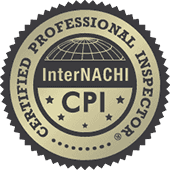Chattanooga Home Inspection: What to Expect During the Process
Looking to buy a home in Chattanooga? Whether you’re drawn to the vibrant downtown, the scenic riverfront, or the charming neighborhoods, finding the perfect place to call your own is a major milestone. Gain peace of mind and a clear understanding of your potential new home’s condition with a comprehensive Chattanooga home inspection before finalizing your purchase.
This blog post will guide you through the entire home inspection process in Chattanooga, from finding the right inspector to understanding the final report. We’ll cover what to expect during the inspection, the key areas assessed, and how to use the information to make informed decisions about your home purchase.
1. Finding a Qualified Home Inspector in Chattanooga
Choosing the right home inspector is the first step in ensuring a thorough and reliable assessment of your property. Here’s what to look for:
- Certifications and Experience: Look for a certified home inspector with experience in the Chattanooga area. They should be familiar with local building codes and common issues in our region.
- Professional Affiliations: Membership in organizations like the American Society of Home Inspectors (ASHI) or the International Association of Certified Home Inspectors (InterNACHI) indicates a commitment to professional standards.
- Online Reviews and Referrals: Check online reviews and ask for referrals from friends, family, or your real estate agent.
- Sample Reports: Ask to see a sample inspection report to get an idea of their thoroughness and reporting style.
- Insurance and Bonding: Ensure the inspector has Errors and Omissions (E&O) insurance and is bonded to protect you in case of mistakes or omissions.
2. Scheduling and Preparing for the Home Inspection
Once you’ve found a qualified inspector, it’s time to schedule the inspection. Here are a few things to keep in mind:
- Timing: Schedule the inspection as soon as possible after your offer is accepted.
- Access: Ensure the inspector has access to all areas of the property, including the attic, crawl space, and any outbuildings.
- Utilities: Make sure all utilities (electricity, water, gas) are turned on for the inspection.

3. What Happens During a Chattanooga Home Inspection?
A typical home inspection in Chattanooga takes about 2-4 hours, depending on the size and age of the property. Here’s a general overview of what the inspector will assess:
- Exterior: The inspector will examine the roof, siding, foundation, grading, drainage, and any exterior structures.
- Interior: They’ll inspect the walls, ceilings, floors, windows, doors, and stairs for any signs of damage or defects.
- Plumbing: The plumbing system, including fixtures, water heater, and drainage, will be checked for leaks, proper function, and water pressure.
- Electrical: The electrical panel, wiring, outlets, and fixtures will be evaluated for safety and compliance with electrical codes.
- Heating and Cooling: The inspector will assess the heating and cooling systems, including the furnace, air conditioner, and ductwork.
- Attic and Crawl Space: These areas will be inspected for insulation, ventilation, and any signs of moisture or pest infestation.
4. Understanding Your Chattanooga Home Inspection Report
After the inspection, you’ll receive a detailed report outlining the inspector’s findings. The report will typically include:
- Summary: An overview of the major issues and concerns.
- Detailed Descriptions: Specific descriptions of each item inspected, including its condition and any recommended repairs or further evaluation.
- Photographs: Visual documentation of any defects or areas of concern.
- Priorities: A ranking of the severity of the issues, often categorized as safety hazards, major repairs, minor repairs, and maintenance items.
5. Using the Inspection Report to Make Informed Decisions
The home inspection report is a valuable tool for negotiating with the seller and making informed decisions about your purchase. Here’s how to use it:
- Identify Major Issues: Focus on any safety hazards or major repairs that need immediate attention.
- Negotiate Repairs: You can request the seller to address certain repairs before closing or provide a credit to cover the costs.
- Further Evaluation: If the report identifies potential concerns, you may want to hire specialized contractors (e.g., a structural engineer, a plumber) for further evaluation.
- Walk Away: In some cases, the inspection may reveal significant issues that make you reconsider the purchase.
A professional home inspection is an essential part of the home-buying process in Chattanooga. It provides you with the information you need to make confident decisions and avoid costly surprises down the road. By understanding the process, knowing what to expect, and using the report effectively, you can ensure a smooth and successful home purchase.
Ready to schedule your Chattanooga home inspection? Contact Full Spectrum Home Inspectors today!





Leave a Reply
Want to join the discussion?Feel free to contribute!